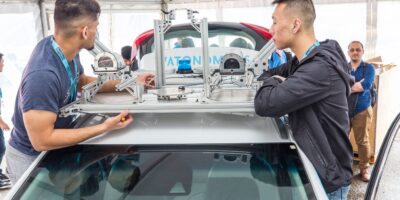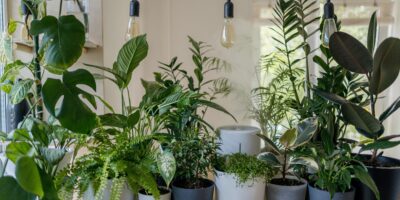My name is Jimmy and I am one of the 2012 Junior Fellows from the University of Waterloo Engineers Without Borders Chapter. For the next few months I will be working on a project called Sustainable Land and Water Management under the Agricultural Extensions team in Northern Ghana. Below are recent thoughts and observations from my life overseas.
We touched down in Accra some four days ago on a relatively cool evening. Even so we were all sweating by the time we left the airport to get taxis. Robin Stratas, Don D’Souza, and Siera Vercillo-three members of EWB team Ghana-helped us arrange and bargain for the ride to our overnight guesthouse.
My first few minutes in Ghana were hot, loud and confusing. The taxi yard was a chaotic tangle of rickety old cars and shouting cabbies. There was a very heavy smell of vegetation, a mix of pollen, wet palm, and fire. The ride to the guesthouse was alarming, reminiscent of taxis in Greece or Poland. Driving in the city is a symphony of near misses with goats, bikes, and people thrown in as punctuation. We arrived at the guesthouse fairly late at night. Immediately surrounding us were a few larger cement buildings and some cement houses. There was a little wind and everyone began to sweat immediately. Our rooms were luxurious by Ghanaian standards, they even have TV. The night was short and breathlessly hot; we got less than four hours of sleep before rising to travel to the bus station. Our first meal in Ghana was crackers and Milo from a small vendor at the bus station. Accra by day is the same chaotic mix of traffic, yet with the sun there is much more to see. The burning smell we found last night turns out to be garbage. All I can say about the first few hours of the trip is that they were very real, that is to say, shocking. Scenes from the slums of Accra and the small roadside villages along the way to Tamale brought poverty into focus, and contrasted heavily with sleek government and industry skyscrapers.
The next twelve hours of travel were surreal. I struggled to take pictures, as it felt somehow indecent to photograph these scenes. The road to Tamale was at times smooth blacktop, at others little more than a washed-out red-dirt trail. The road was supposedly funded by Chinese money. However the long term volunteers had said that there had been little noticeable improvements over the years. Every three hours the bus would stop in a fairly large town or city for food and bathrooms. Kumasi was the first major stop. The city seemed more hopeful than Accra. There were no slums on the route we took through the city, and some well-established businesses could be seen. Kintampo was the next big stop, where we got off at the Kintampo market. It was like falling into a whole new world. All the smells are new, the sounds, the language, the sights, all totally foreign. Yet you connect with the people there somehow whether through a smile, or a quick wave. The market was totally ramshackle, with booths built from decades old plywood and corrugated metal. Everything is warped from the rains, and the ground is pounded flat from a constant stream of buses and travelers.
We arrived in Tamale late, around 9 pm, and took a cab to our guesthouse on the edge of town. The power was out, so we had a quick meal and got to bed. Our in-country training sessions, and team-specific sessions filled the following days. The best part of this time was a glorified “To-Do” list. The list had us go into Tamale market in pairs searching for various helpful logistical items, and some fun things as well. The highlight from my time there was a great conversation with a Rasta on the roof of a bar. He had a lot to say about Canada, and spoke excellent English.
Right now the first people to take-off to their placements are packing up and leaving. It’s intense to think we are all about to be thrown even further into Ghana, basically on our own. Any sort of acclimatization we have come to in the past five days is going to seem trivial as we lose our last few Western comforts. It’s exciting for sure, I’m looking forward to seeing everyone again in 5 weeks for mid-placement, and especially to see how everyone has adjusted.
Peace, love and happy trails!
Want to read more? Check out my blog for many more thoughts and updates at:
More information on the Junior Fellowship program and Engineers Without Borders can be found at:







Leave a Reply